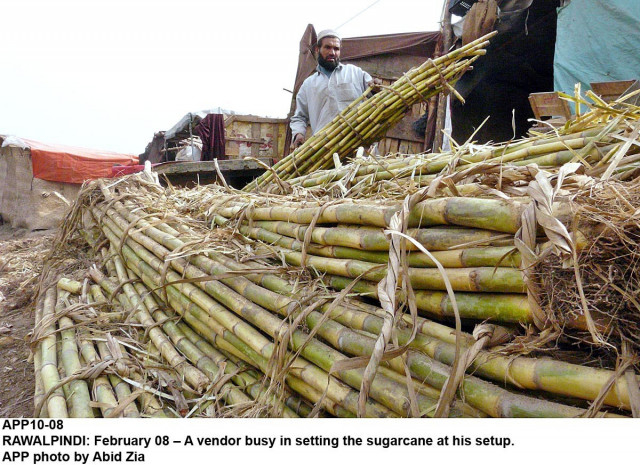Losing out: Sugarcane production below its sweet mark
Conference held in collaboration with UAF, USDA and AARI to address issue.

Pakistan ranks at number 60 in terms of per hectare production of sugarcane. PHOTO: APP
This was echoed at the national conference titled, “Prospects, Challenges and Strategies to Maximise Sugarcane Production”, arranged by the University of Agriculture Faisalabad (UAF) in collaboration with the United States Department of Agriculture (USDA) and the Ayub Agricultural Research Institute(AARI).
The inaugural session was chaired by UAF Vice Chancellor Iqrar Ahmad while Sugarcane Research and Development Board Punjab Chairman Nauman Khan, AARI Director General Abid Mehmood, UAF Agriculture Faculty Dean Muhammad Arshad, UAF Endowment Fund Executive Director Zahir Ahmad Zahir and Chairman Agronomy Ehsanullah Chahal also attended the ceremony.
Addressing the occasion, Ahmad said that the Punjab government had set up the Sugarcane Research and Development Board in order to address the issue of production.
“It will help the country increase sugarcane productivity,” said Ahmad, adding that tolerant varieties needed to be introduced through biotechnology keeping the climate change and global warming in mind.
He maintained that value addition and the slow adoption rate of latest tools, technology and practices were weak areas, which may be strengthened by raising awareness among farmers. He also informed the audience that the UAF scholars had written 150 theses on sugarcane, adding that this research that must be transformed into tangible results.
“Poverty alleviation is directly linked to rural area development where agriculture is the only source of income for inhabitants,” he commented, concluding that increasing sugarcane production will not only benefit farmers but society at large.
Published in The Express Tribune, April 9th, 2014.
Like Business on Facebook, follow @TribuneBiz on Twitter to stay informed and join in the conversation.


















COMMENTS
Comments are moderated and generally will be posted if they are on-topic and not abusive.
For more information, please see our Comments FAQ